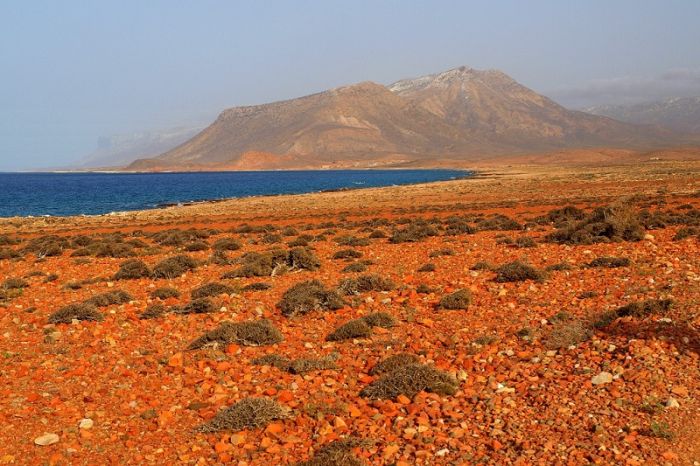|
|
Socotra Archipelago, Republic Of Yemen, Indian Ocean
|
Over two thousand years of human settlement on the islands have slowly but continuously changed the environment, and according to Jonathan Kingdon, "the animals and plants that remain represent a degraded fraction of what once existed". The Periplus of the Erythraean Sea says the island had crocodiles and large lizards, and the present reptilian fauna appears to be greatly reduced. Until a few centuries ago, there were rivers and wetlands on the island, greater stocks of the endemic trees, and abundant pasture. The Portuguese recorded the presence of water buffaloes in the early 17th century. Now there are only sand gullies, and many native plants only survive where there is greater moisture or protection from livestock. The remaining Socotra fauna is greatly threatened by goats and other introduced species.
• UNESCO recognition
The island was recognised by the United Nations Educational, Scientific and Cultural Organization (UNESCO) as a world natural heritage site in July 2008. The European Union has supported such a move, calling on both UNESCO and International Organisation of Protecting Environment to classify the island archipelago among the environmental heritages.
|
|









